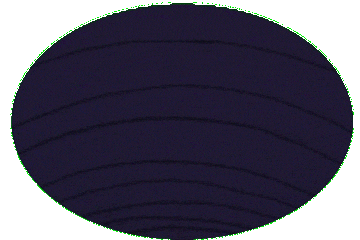Creedence Clearwater Revival
Creedence Clearwater Revival, commonly abbreviated as CCR or simply Creedence, was an American rock band formed in El Cerrito, California, in 1959. The band consisted of the lead vocalist, lead guitarist, and primary songwriter John Fogerty; his brother, the rhythm guitarist Tom Fogerty; the bassist Stu Cook; and the drummer Doug Clifford. These members had played together since 1959, first as the Blue Velvets and later as the Golliwogs, before settling on Creedence Clearwater Revival in 1967. The band's most prolific and successful period, between 1969 and 1971, produced 14 consecutive top-10 singles (many of which were double A-sides) and five consecutive top-10 albums in the United States, two of which—Green River (1969) and Cosmo's Factory (1970)—topped the Billboard 200 chart. The band performed at the 1969 Woodstock festival in upstate New York and was the first major act signed to appear there. CCR disbanded acrimoniously in late 1972 after four years of chart-topping success. Tom had quit the band the previous year and John was at odds with the remaining members over matters of business and artistic control, all of which resulted in lawsuits among the former bandmates. John's disagreements with Fantasy Records owner Saul Zaentz led to more court cases and John refused to perform with the two other surviving members of the band—Tom had died in 1990—at Creedence's 1993 induction into the Rock And Roll Hall of Fame. Though the band has never publicly reunited, John continues to perform CCR songs as part of his solo act, while Cook and Clifford performed as Creedence Clearwater Revisited from 1995 to 2020. CCR's music remains popular and is a staple of U.S. classic rock radio airplay. The compilation album Chronicle: The 20 Greatest Hits, originally released in 1976, is still on the Billboard 200 and reached the 750-week mark in June 2025. It has been certified 12-times platinum by the Recording Industry Association of America for at least 12 million copies sold in the U.S.
This article uses material from the Wikipedia article "Creedence Clearwater Revival", which is released under the Creative Commons Attribution-Share-Alike License 3.0.
References
| Title | Summary | |
|---|---|---|
| Harry Nilsson on FM Radio | Asked in 1969 to comment on the programming choices made by ... | |

![Creedence Clearwater Revival - Willy & Poor Boys [New Vinyl LP] 180 Gram Creedence Clearwater Revival - Willy & Poor Boys [New Vinyl LP] 180 Gram](https://i.ebayimg.com/images/g/3OIAAeSwvjBpHbGT/s-l225.jpg)

